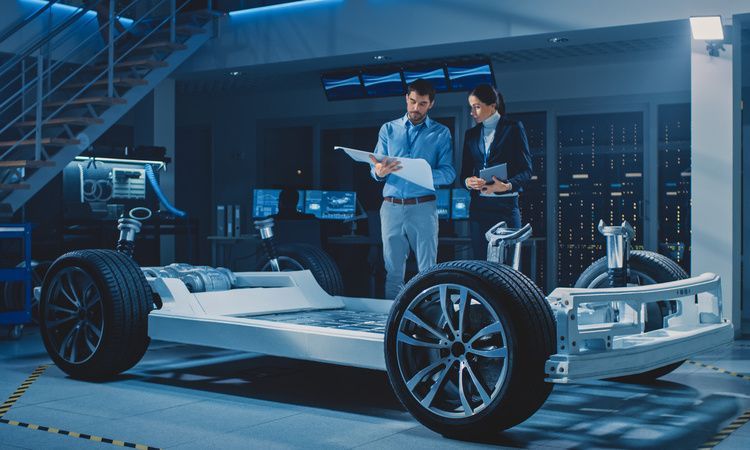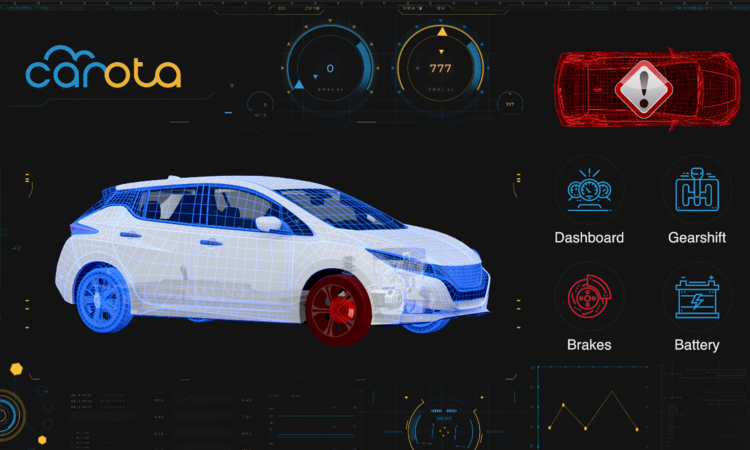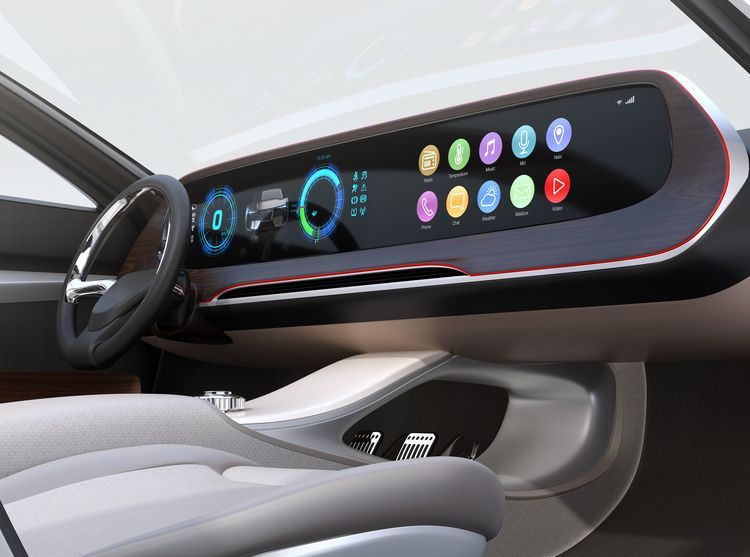Pros and Challenges of Connected Cars from the Automaker’s Perspective

Over the last few years, connected car technology has taken off and has seen rapid development. This, in turn, has fueled the global connected car market. Of course, even the most trusted names in the more than century-old automotive industry, such as General Motors, BMW, Mercedes Benz, Audi, Volkswagen, and Volvo, also have their own versions of connected vehicles to keep up with the times.
But what do automakers have to gain by producing connected cars? Do they need to jump in on the trend even if they have already established their brand?
In this article, let's talk about the pros and challenges of connected cars from an automaker's perspective.
Pros of Making Connected Cars
There is no denying that driving a connected car has a host of benefits. And the fact that these cutting-edge vehicles have a lot to offer to modern drivers means a huge earning opportunity for automakers. Because how else do car manufacturers stay relevant in the market or stay ahead of competitors if they don't innovate and incorporate new technology, right?
However, there's actually more for automakers to gain aside from the sales aspect of it and aside from being able to keep customers interested in their brand or to satisfy the growing demand.
Here are several other benefits that carmakers can enjoy by going the connected car route.
Proactive and Predictive Performance and Remote Diagnostic
One of the best features of connected cars is their ability to troubleshoot and diagnose issues remotely – even way before they happen. They are equipped with a predictive diagnostic and “self-healing” software solution that improves efficiency and saves valuable time for both car owner and carmaker.
For instance, when a component of a car is due for a replacement, the manufacturer now has a way of informing the driver ahead of time through an app or software. This feature will also work hand-in-hand with the satellite navigation feature and inform the driver in case road conditions on a programmed route will cause problems for the car.
Keep in mind that vehicle breakdowns can be expensive, annoying, and time-consuming. Not just for the owner but also for the automaker. So, when failures can be avoided through a software that continuously monitors, reports, and evaluates system and component conditions based on data, as well as performs preventive vehicle-specific maintenance, both parties get to save time, costs, and energy.
Incorporating this proactive and predictive performance and remote diagnostic feature in their cars allows manufacturers to help prevent accidents, fatalities, and vehicle damage. The car software company Carota has developed an advanced predictive diagnostic feature within its Remote diagnostic solution for commercial and passenger vehicles.
Over-The-Air Software and Firmware Updates
Software and firmware updates allow manufacturers to recalibrate a connected car's base frame, introduce new features more easily, enhance the functionality of existing features, and ensure that the vehicle stays longer on the road. However, being able to deploy these updates over-the-air or through a wireless method (instead of manually or automatically) would mean a world of convenience for automakers and car owners.
For one, manufacturers no longer need for users to download the update themselves, to wait until a new update becomes available, or to accept the update first. These updates will be automatically pushed through all the users' systems at the same time, so they can all enjoy the automaker's services together. This eliminates downtime for everyone. According to a McKinsey survey in China, “69 percent of respondents think that OTA is an important way to upgrade vehicles, and 62 percent of those who considered OTA important are willing to pay for it”.
These OTA updates are also an efficient way for manufacturers to fix bugs and change interfaces to more user-friendly ones.
Extensions of the Automaker’s Relationship with Customers
Connected cars allow automakers to extend their relationship with customers throughout the duration of their ownership. This manufacturer-customer relationship doesn't just stop after a vehicle is purchased and driven out of the dealership. It is no longer just limited to occasional visits to the repair and maintenance center.
Instead, automakers and customers remain connected through the many features and functionalities of a connected vehicle. For one, manufacturers need to provide regular software and firmware updates to give customers a seamless driving experience all throughout. They also continue to serve customers through continuous development of apps and through predictive diagnostic services, among many others.

One of the best features of connected cars is their ability to troubleshoot and diagnose issues remotely – even way before they happen
New Revenue Streams
With connected vehicles, automakers get to have revenue streams beyond the car's point of sale and beyond proprietary auto parts and accessories. We are talking about alternative earning opportunities like apps and special features. For example, aside from the predictive maintenance function, manufacturers can offer online service scheduling. They can also add more infotainment channels, security and notification services, and a wide array of other options that customers can take advantage of for a fee or on a multi-tier subscription plan basis.
The best thing about connectivity is that the options and opportunities are endless.
Environmental Benefits
Connected car technology helps improve driving safety and manage road traffic, especially in major roads and highways in highly urbanized areas. Being able to alert drivers about traffic jams, harsh weather conditions, and even about general vehicle status allows them to take alternative routes and adjust their rate of travel. Reduced risks of accidents and vehicle breakdowns also prevents disruption to traffic, which could affect other cars. Shorter times on the road and a smoother drive, in turn, helps reduce emissions and promotes fuel economy.
And we know that a win for the environment is a win for everyone, including automakers.
Challenges of Making Connected Cars
It’s not all rainbows and unicorns for automakers when it comes to manufacturing connected cars. They have some tough challenges to face and overcome, too.
Communication Lag Built into Earlier Generation of Connected Vehicle Platforms
The communications lag that is built into the earlier connected car platform will require manufacturers to redesign these communication pathways so that they connect to more number of systems – in real time. Doing this won't be easy considering that different teams who work on various phases and areas of technology development and deployment are siloed. Teams working separately in silos results in downtime and a lot of internal issues.
This problem, however, can be solved through utilizing DevOps, which is a set of practices, tools, and strategies that enables software development and IT operations to function together. When DevOps is applied, the communications gap is bridged. As a result, there is less downtime in between the different phases of software application development (from developing codes, to testing the output, doing QA, developing IT architecture, environment development, and to taking the product out to the real world).

Manufacturers can offer online service scheduling, infotainment channels, security and notification services, and a wide array of other options
Security and Data Privacy
Connected vehicles raise data privacy and security issues. Since part of a connected vehicle's job is to access data from and share data with other devices within and outside of the vehicle, it is normal for customers to be concerned about how much of their personal data will be accessible to others and how much risk they are exposed to. Moreover, a vehicle's connectivity will increase its risks of cyberattacks and hacking. There will be questions relating to what will happen to the car's system if a cybercriminal manages to get malware inside or manages to get control of its features.
As such, automakers will have to address these issues. They will have to abide by strict data regulations and obtain compliance certificates to assure customers. At the same time, they also need to get their customers' consent to collect and use their driving data for use in their software. Carota has team up with a number of automotive anti-virus solution provider, to help automakers address security issues.
Technical and Technological Challenges
Another huge challenge pertains to the technical and technological aspects of developing a connected car. Aside from an automaker’s usual team of computer engineers and IT experts who continuously come up with new technologies to improve typical vehicle features and operations (like a new technology to improve fuel efficiency or a new tech for the production of better wheels), new experts will have to be added to the mix to deal with a whole new set of functions that are mainly computer-related (like the latest mobile app for self-parking). This very expanded technology department could mean a lot of coordination and adjustment for everyone involved.
And because computer technology can never be too perfect, system glitches or system errors may occur. These glitches don’t just entail inconvenience for the driver or car owner, it could impact their security and safety, too, depending on what features and functions are affected. So, when a connected vehicle experiences such technical issues, it’s not just the customer who needs to deal with it. The automaker needs to respond and address technical issues promptly and efficiently before their brand’s integrity is compromised.
Moreover, if such technical issues occur across similar connected vehicle models and if these issues take time for automakers to resolve, these could result in a recall.
Simply put, making connected cars involve a bigger area of responsibility and accountability for automakers. There will be a lot more aspects about the vehicle that manufacturers will have to take care of and handle.
===
The many benefits of connected cars outweigh its challenges. These new and high-tech vehicles have a lot to offer, not just to car owners, but also to automakers. Aside from getting into the latest trend and making big bucks, connected car manufacturers will have less cars to fix and maintain, a more convenient way to implement over-the-air software updates, improve customer support, and help promote a greener environment.
